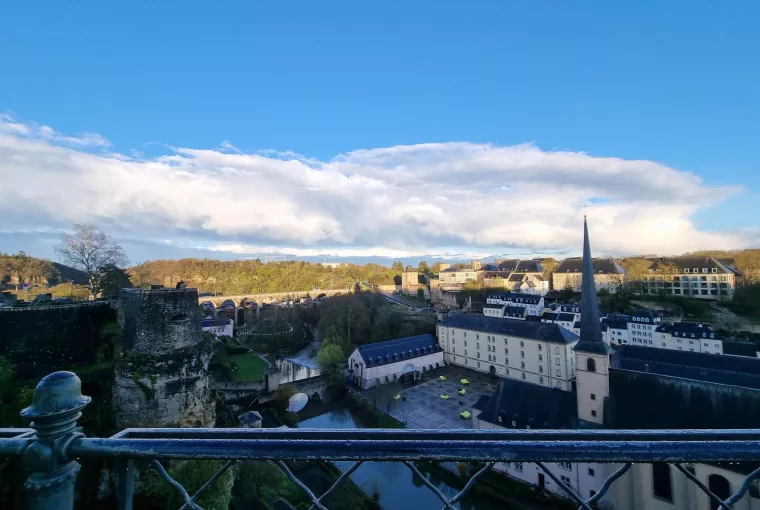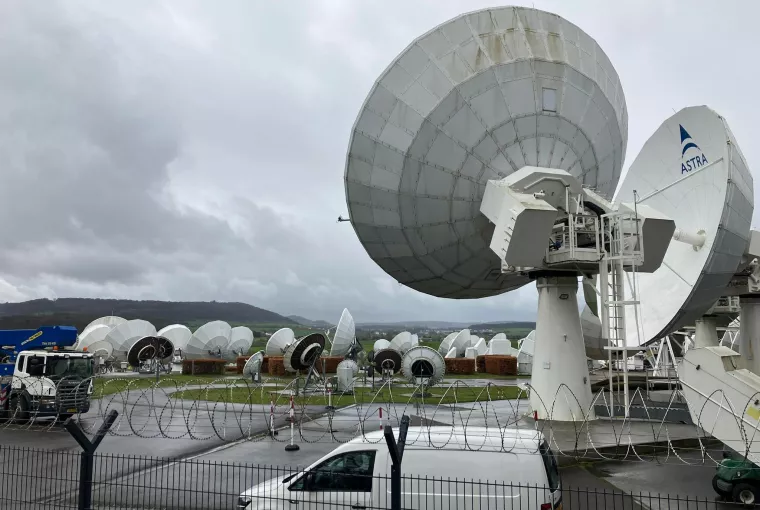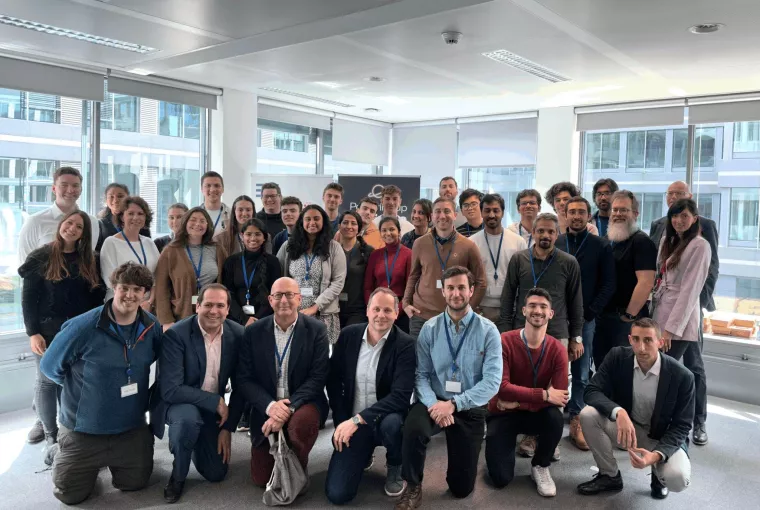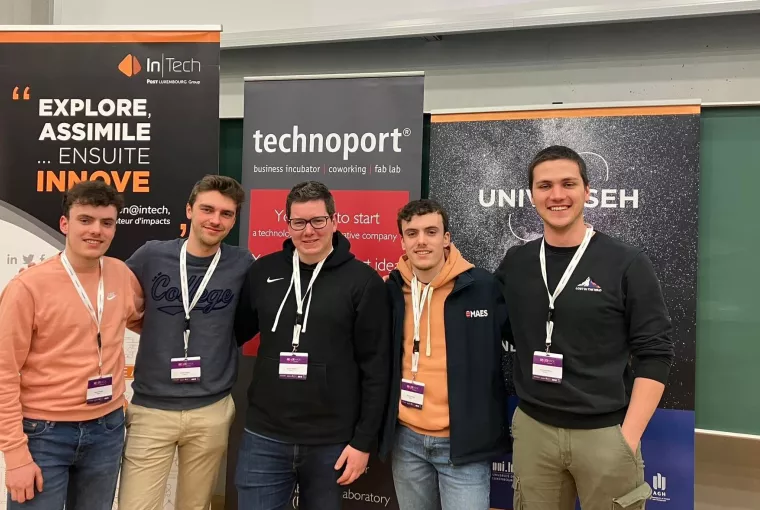During the second week of the pre-blocus period, Florian Villeret, Martin and Virgile Devolder, Antoine Baetslé and Corentin Bouffioux, all computer science students, were able to discover the world of space technology during their stay at Belval in Luxembourg. They had the opportunity to visit the Société Européenne des Satellites and attend a presentation by the Luxembourg Space Agency, a conference by the Asteroid Foundation and a presentation by PwC on space innovations.
Then, rather like a Hackathon, they had a whole weekend to take up a challenge by developing an innovative concept. Several themes were proposed during the SpaceHack (infrastructure, energy, resource extraction and operations).
They chose to tackle the lunar infrastructure challenge. The starting point was as follows: building a lunar base to accommodate a human colony will cost €25 billion to set up and €4 billion a year to maintain.
The challenge in question? To build a lunar base for a human colony and to forecast the costs of installation (€25 million) and maintenance (€4 billion per year). They therefore developed two technologies: predictive maintenance software to anticipate potential problems using a range of IoT-connected sensors, and hardware to add sensors to existing rovers to strengthen the base's sensor network. The aim was to reduce maintenance requirements by 10%, saving €400 million a year.
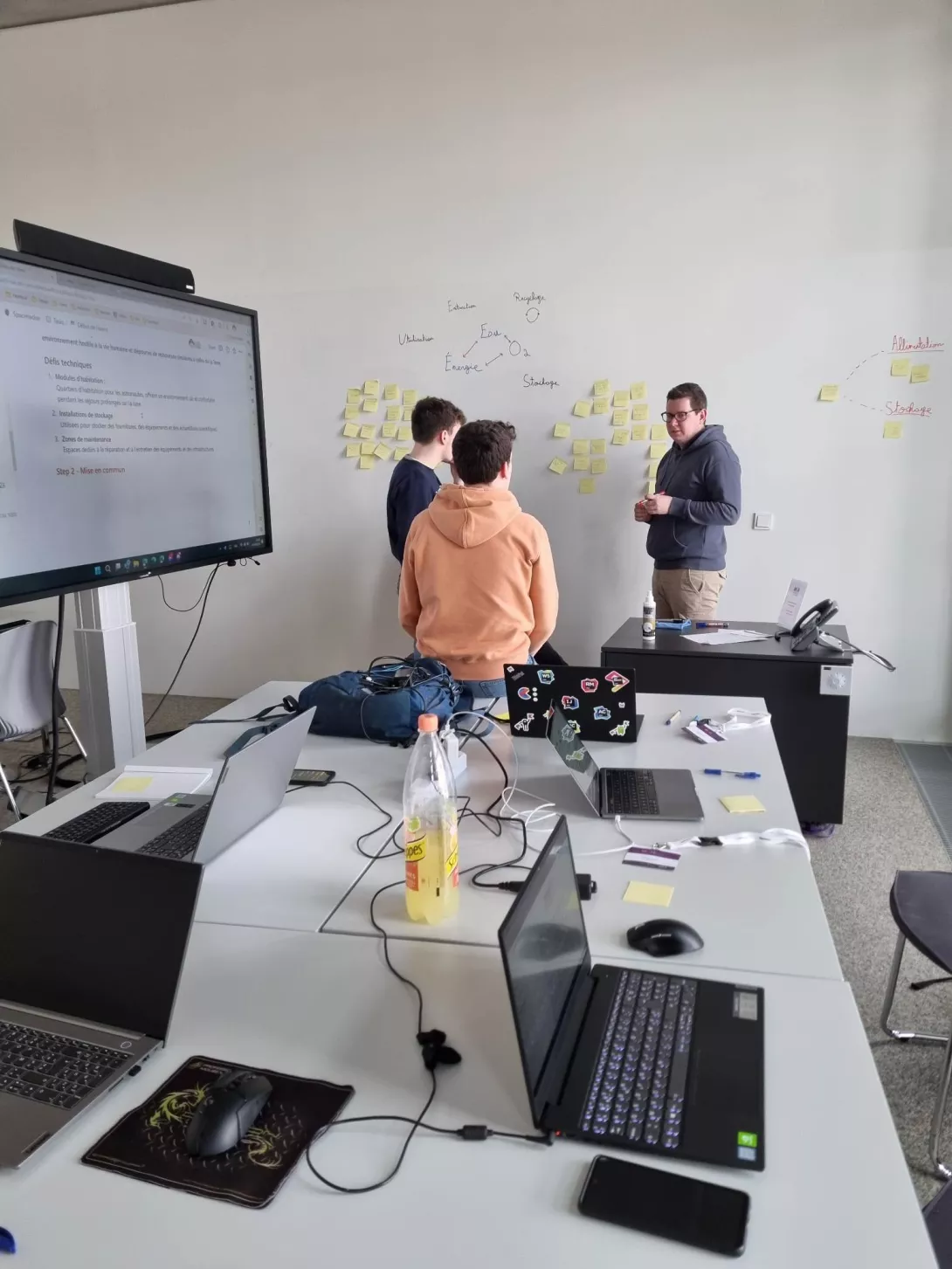
Even though the project did not win any prizes, it was a very rewarding experience for the students.
It was a great opportunity to showcase UNamur within the UniversEH alliance, the "European Space University for Earth and Humanity" alliance that UNamur recently joined!

